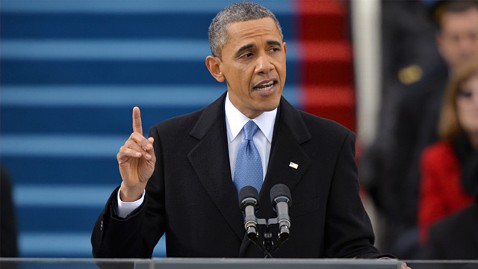The siege by Islamic militants at a remote Sahara desert natural gas plant in Algeria this week signaled heightened dangers in the region for international oil companies, at a time when they have been expanding operations in Africa as one of the world's last energy frontiers. (See related story: "Pictures: Four New Offshore Drilling Frontiers.")
As BP, Norway's Statoil, Italy's Eni, and other companies evacuated personnel from Algeria, it was not immediately clear how widely the peril would spread in the wake of the hostage-taking at the sprawling In Amenas gas complex near the Libyan border.

Map by National Geographic
Algeria, the fourth-largest crude oil producer on the continent and a major exporter of natural gas and refined fuels, may not have been viewed as the most hospitable climate for foreign energy companies, but that was due to unfavorable financial terms, bureaucracy, and corruption. The energy facilities themselves appeared to be safe, with multiple layers of security provided both by the companies and by government forces, several experts said. (See related photos: "Oil States: Are They Stable? Why It Matters.")
"It is particularly striking not only because it hasn't happened before, but because it happened in Algeria, one of the stronger states in the region," says Hanan Amin-Salem, a senior manager at the industry consulting firm PFC Energy, who specializes in country risk. She noted that in the long civil war that gripped the country throughout the 1990s, there had never been an attack on Algeria's energy complex. But now, hazard has spread from weak surrounding states, as the assault on In Amenas was carried out in an apparent retaliation for a move by French forces against the Islamists who had taken over Timbuktu and other towns in neighboring Mali. (See related story: "Timbuktu Falls.")
"What you're really seeing is an intensification of the fundamental problem of weak states, and empowerment of heavily armed groups that are really well motivated and want to pursue a set of aims," said Amin-Salem. In PFC Energy's view, she says, risk has increased in Mauritania, Chad, and Niger—indeed, throughout Sahel, the belt that bisects North Africa, separating the Sahara in the north from the tropical forests further south.
On Thursday, the London-based corporate consulting firm Exclusive Analysis, which was recently acquired by the global consultancy IHS, sent an alert to clients warning that oil and gas facilities near the Libyan and Mauritanian borders and in Mauritania's Hodh Ech Chargui province were at "high risk" of attack by jihadis.
"A Hot Place to Drill"
The attack at In Amenas comes at a time of unprecedented growth for the oil industry in Africa. (See related gallery: "Pictures: The Year's Most Overlooked Energy Stories.") Forecasters expect that oil output throughout Africa will double by 2025, says Amy Myers Jaffe, executive director of the energy and sustainability program at the University of California, Davis, who has counted 20 rounds of bidding for new exploration at sites in Africa's six largest oil-producing states.
Oil and natural gas are a large part of the Algerian economy, accounting for 60 percent of government budget revenues, more than a third of GDP and more than 97 percent of its export earnings. But the nation's resources are seen as largely undeveloped, and Algeria has tried to attract new investment. Over the past year, the government has sought to reform the law to boost foreign companies' interests in their investments, although those efforts have foundered.
Technology has been one of the factors driving the opening up of Africa to deeper energy exploration. Offshore and deepwater drilling success in the Gulf of Mexico and Brazil led to prospecting now under way offshore in Ghana, Mozambique, and elsewhere. (See related story: "New Oil—And a Huge Challenge—for Ghana.") Jaffe says the Houston-based company Anadarko Petroleum has sought to transfer its success in "subsalt seismic" exploration technology, surveying reserves hidden beneath the hard salt layer at the bottom of the sea, to the equally challenging seismic exploration beneath the sands of the Sahara in Algeria, where it now has three oil and gas operations.
Africa also is seen as one of the few remaining oil-rich regions of the world where foreign oil companies can obtain production-sharing agreements with governments, contracts that allow them a share of the revenue from the barrels they produce, instead of more limited service contracts for work performed.
"You now have the technology to tap the resources more effectively, and the fiscal terms are going to be more attractive than elsewhere—you put these things together and it's been a hot place to drill," says Jaffe, who doesn't see the energy industry's interest in Africa waning, despite the increased terrorism risk. "What I think will happen in some of these countries is that the companies are going to reveal new securities systems and procedures they have to keep workers safe," she says. "I don't think they will abandon these countries."
This story is part of a special series that explores energy issues. For more, visit The Great Energy Challenge.













